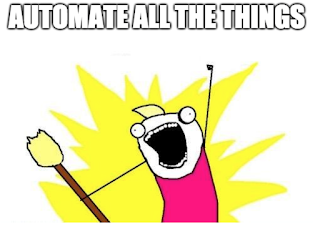Automate Work and Life with IFTTT and Office 365 Flow

I'm a huge fan of automation for situations where I find myself doing something mindlessly over and over again, like punching a clock. The way I approach these problems is to find a way to eliminate some portion of the task and iterate till it just happens on it's own. To avoid confusion, when I say punching a clock what I mean is knowing a rough approximation of how long I worked on a given day so that when I need to put in my "billable vs. non-billable" time at the end of the week I have a rough idea of how much time I spent on working each day. As such the way I "manually" accomplished this was putting the time I arrived at work and the time I left into a spread sheet. So, step one, avoid having to open excel to enter the information. This was easy using a feature of Office 365 called Flow . It's an application that smells very similar to the populate If This Then That site (a.k.a. IFTTT.com ). Flow makes it easy to setup operations that...

